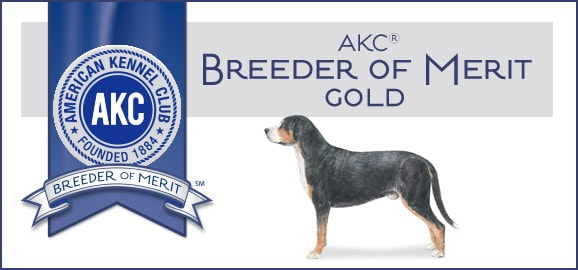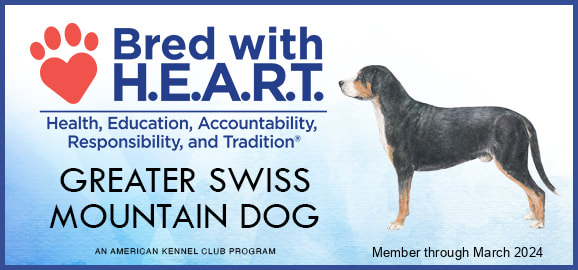SPLENIC TORSION
Diseases of the spleen, from Hemangiosarcoma to Splenic Torsion, are serious concerns in the Greater Swiss Mountain Dog. They seem to be more common in large breed dogs, particularly splenic torsion. Spleen issues are also more common in dogs five years of age and older though we have seen them in younger dogs. The clinical signs of splenic issues are often very similar, and it is often only upon surgery that the real issue is diagnosed. Unfortunately Hemangiosarcoma has a very grave prognosis, with most dogs succumbing very quickly to the disease. Splenic torsion can be treated through removal of the spleen if it is caught in time.
Splenic torsion may sometimes occur in tandem with gastric torsion (an enlarged, twisted spleen may be found when the GDV surgery is done). Splenic torsion, however, may present on its own and the signs are not nearly as dramatic as gastric torsion. Paleness of the gums is the most common sign of splenic torsion. Just as with gastric torsion, the twisting of the spleen on its axis cuts off blood flow. Another sign may be abdominal distention or tenderness, and you may notice your Swissy being listless, generally uncomfortable, slow getting up or down, not walking comfortably, etc. Other signs may include increased heart rate and respirations, vomiting, diarrhea, lack of appetite.
We like to say if your Swissy seems "just not right" and you don't now why, play it safe and take him to the vet. There may well be a spleen issue brewing. Your vet may look at you like you're nuts, but assure them that spleen problems are very real in the Greater Swiss Mountain Dog. Swissies will usually have a better shot at surviving a torsed spleen than a torsed stomach, because a dog can live without its spleen. The key, however, is recognizing the signs in time to get your dog to the hospital in time to perform the critical life-saving surgery.
The following is an article, which was printed in the SENNTINEL, co-authored by long-time Swissy breeder, Sharyl Mayhew and her vet, Dr. Jackson, who has become an expert in Swissy spleen issues. Note, at the end of the article is Dr. Jackson's phone number. If you suspect your Swissy has a splenic torsion and your vet would like to discuss this with Dr. Jackson for more breed-specific information, don't hesitate to contact him.
Splenic torsion may sometimes occur in tandem with gastric torsion (an enlarged, twisted spleen may be found when the GDV surgery is done). Splenic torsion, however, may present on its own and the signs are not nearly as dramatic as gastric torsion. Paleness of the gums is the most common sign of splenic torsion. Just as with gastric torsion, the twisting of the spleen on its axis cuts off blood flow. Another sign may be abdominal distention or tenderness, and you may notice your Swissy being listless, generally uncomfortable, slow getting up or down, not walking comfortably, etc. Other signs may include increased heart rate and respirations, vomiting, diarrhea, lack of appetite.
We like to say if your Swissy seems "just not right" and you don't now why, play it safe and take him to the vet. There may well be a spleen issue brewing. Your vet may look at you like you're nuts, but assure them that spleen problems are very real in the Greater Swiss Mountain Dog. Swissies will usually have a better shot at surviving a torsed spleen than a torsed stomach, because a dog can live without its spleen. The key, however, is recognizing the signs in time to get your dog to the hospital in time to perform the critical life-saving surgery.
The following is an article, which was printed in the SENNTINEL, co-authored by long-time Swissy breeder, Sharyl Mayhew and her vet, Dr. Jackson, who has become an expert in Swissy spleen issues. Note, at the end of the article is Dr. Jackson's phone number. If you suspect your Swissy has a splenic torsion and your vet would like to discuss this with Dr. Jackson for more breed-specific information, don't hesitate to contact him.

